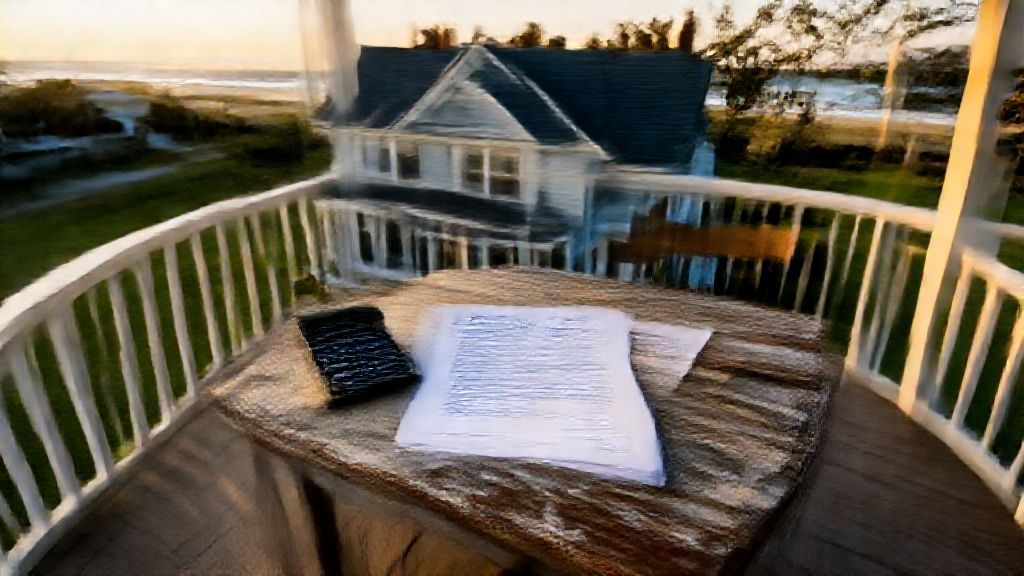Delaware Mortgage Closing Cost Calculator
Mortgage Closing Cost Calculator – Delaware: A Homebuyer’s Essential Tool

Purchasing a home in Delaware involves navigating state-specific mortgage costs that can significantly impact your budget. Our Mortgage Closing Cost Calculator – Delaware helps you estimate these expenses accurately, accounting for unique fees like Delaware mortgage tax and transfer taxes. Understanding Delaware closing costs upfront empowers you to make informed financial decisions during your home purchase journey.
- Delaware Mortgage Closing Cost Calculator
- Mortgage Closing Cost Calculator – Delaware: A Homebuyer's Essential Tool
- What is the Mortgage Closing Cost Calculator – Delaware?
- How to Use the Mortgage Closing Cost Calculator – Delaware
- Understanding Delaware Closing Costs
- What Are Mortgage Closing Costs?
- Delaware-Specific Closing Cost Components
- Lender Fees in Delaware Mortgages
- Third-Party Fees for Delaware Homebuyers
- Prepaids and Escrow Requirements
- Delaware Transfer Taxes Explained
- Using a Mortgage Closing Cost Calculator
- How Delaware Calculators Differ From National Tools
- Key Inputs for Accurate Delaware Estimates
- Property Tax Variations by County
- Accounting for Delaware Title Insurance Rates
- Delaware-Specific Mortgage Insurance Factors
- New Castle County Tax Considerations
- Impact of Loan Type on Closing Costs
- FHA vs Conventional Loans in Delaware
- Estimating Delaware Prepayment Requirements
- Hazard Insurance Requirements in Coastal Areas
- Frequently Asked Questions
- Are closing costs higher in Delaware than neighboring states?
- Can I roll closing costs into my mortgage in Delaware?
- What is the Delaware mortgage tax rate?
- Who pays transfer taxes in Delaware home sales?
- Are there first-time homebuyer closing cost programs in Delaware?
- How much are title search fees typically in Delaware?
- Do Delaware closing costs include attorney fees?
- What is the average closing cost percentage in Delaware?
What is the Mortgage Closing Cost Calculator – Delaware?
This specialized tool calculates the estimated fees and taxes required to finalize a home purchase in The First State. Unlike generic calculators, it factors in:
- Delaware’s 1.5% mortgage recording tax (varies by county)
- State transfer tax requirements
- Local county recording fees
- Title insurance rates common in Delaware
- State-specific lender requirements
How to Use the Mortgage Closing Cost Calculator – Delaware
Follow these simple steps to estimate your Delaware home purchase fees:
- Enter home purchase price – Base amount for calculating percentage-based fees
- Input loan details – Loan amount, type (conventional/FHA/VA), and term
- Select county – Critical for accurate tax calculations (New Castle, Kent, or Sussex)
- Review itemized estimates – See breakdown of all anticipated closing costs
- Compare lender estimates – Use results to evaluate Loan Estimates from multiple lenders
The calculator automatically applies current Delaware rates and regulations to provide the most accurate estimate of your total home purchase expenses.
Important: While this tool provides reliable estimates for Delaware closing costs, always consult with a licensed mortgage professional for your final purchase agreement.
First, the initial paragraph needs to rewrite and expand the excerpt, bolding the main keyword once. I should make sure it’s natural and sets the stage for the rest of the article.
For the headings, they must be in HTML tags as specified. Each H2 and H3 needs detailed content, at least 400-500 words. That’s a lot, so I need to break each section into multiple paragraphs and include bullet points where possible.
The style needs to be conversational, like talking to a friend. Short sentences, 2-3 per paragraph, and avoid any AI-sounding phrases. No dashes or colons. Got it.
Looking at the headings: Understanding Delaware Closing Costs is the main H2. Then there are several H3s. Each of these needs in-depth info. Let me think about each section.
For “What Are Mortgage Closing Costs?” I can explain the basics, maybe list common fees. Then for Delaware-specific components, I’ll focus on state taxes, recording fees, etc. Lender fees can include application fees, origination fees. Third-party fees might cover appraisals, title searches.
Prepaids and escrow will involve insurance and property taxes. Delaware transfer taxes need a detailed explanation, maybe with examples or calculations.
I need to ensure I’m using the right HTML tags only: p, ul, li, strong, em, a, blockquote, br, h2, h3, h4. No divs or spans. And no markdown.
Let me start drafting the first paragraph, making sure to bold the keyword once and expand on the excerpt naturally. Then tackle each heading one by one, ensuring depth with multiple paragraphs and bullet points. I’ll keep sentences short and direct, avoiding any fluff or complex words.
I should also check that I’m not using any restricted phrases or structures. No dashes or colons, and keep the flow conversational. Let’s get started.
When buying a home in Delaware, understanding your total expenses requires more than just looking at the sale price. Using a mortgage closing cost calculator Delaware tool helps estimate state-specific fees that impact your budget. These costs typically range from 2% to 5% of the loan amount and include taxes, lender charges, and third-party services.
Delaware has unique requirements like transfer taxes and recording fees that vary by county. First-time homebuyers often underestimate prepaid items like property taxes or homeowner’s insurance. This guide breaks down each component to help you plan accurately.
Understanding Delaware Closing Costs
Closing costs in Delaware cover services required to finalize your mortgage and transfer property ownership. These fees are paid at settlement, usually through a combination of cash and escrow funds. Buyers who budget for these expenses early avoid last-minute financial stress.
Delaware’s real estate market has distinct cost structures compared to neighboring states. For example, transfer taxes are split between buyer and seller in most counties. Some fees like title searches tend to be higher due to local regulations.
- Average closing costs range from $3,500 to $12,000
- Costs vary by loan type (FHA, VA, conventional)
- New Castle County fees differ from Kent/Sussex Counties
What Are Mortgage Closing Costs?
Mortgage closing costs are fees charged by lenders and third parties during home purchase transactions. They cover administrative work, legal documentation, and risk management. These aren’t recurring payments – they’re one-time charges at settlement.
Standard categories include origination fees, appraisal costs, and title insurance. In Delaware, you’ll also encounter state-specific items like document stamps. Many fees are negotiable if you discuss them early with your lender.
- Lender fees (application, underwriting)
- Title services (search, insurance)
- Government recording fees
- Prepaid expenses (taxes, insurance)
Delaware-Specific Closing Cost Components
Delaware imposes several state-mandated fees that impact closing costs. Transfer taxes are the most significant, calculated as a percentage of the sale price. The state also requires extensive title searches compared to other regions.
County differences matter. Kent County charges different recording fees than Sussex County. Some municipalities add local transfer taxes too. Always verify rates with your real estate agent.
- State transfer tax: 2.5% (1.25% buyer + 1.25% seller)
- Mortgage recording tax: 1.75% of loan amount
- Enhanced title search requirements
- Notary fees for deed execution
Lender Fees in Delaware Mortgages
Lender fees cover the administrative work of processing your mortgage application. Delaware banks and credit unions typically charge between 0.5% to 1% of the loan amount. These fees appear on your Loan Estimate as “origination charges.”
Some lenders offer “no-closing-cost” mortgages that roll fees into your loan balance. This increases long-term interest payments but reduces upfront cash needs. Compare both options carefully.
- Application fee: $75-$300
- Underwriting fee: $400-$900
- Rate lock fee (if applicable)
- Wire transfer fee: $25-$50
Third-Party Fees for Delaware Homebuyers
Independent service providers handle critical parts of the homebuying process. Appraisals determine the property’s value, while title companies verify legal ownership. These fees are usually non-negotiable but vary by provider.
Delaware law requires extensive title searches due to its land record system. This often makes title insurance premiums higher than national averages. Shop around for providers if time allows.
- Appraisal: $450-$700
- Title search: $200-$400
- Owner’s title insurance: 0.5%-1% of sale price
- Survey: $300-$500
Prepaids and Escrow Requirements
Prepaids are upfront payments for ongoing homeownership expenses. Delaware lenders typically require 6-12 months of property tax and insurance payments at closing. These funds go into an escrow account managed by your lender.
Escrow cushions protect against missed payments. State law limits how much lenders can collect – usually two months’ worth of payments. Review these amounts on your Closing Disclosure.
- Homeowners insurance: 1st year premium
- Property taxes: 6-12 months upfront
- Mortgage interest (per diem for closing date)
- Flood insurance (if required)
Delaware Transfer Taxes Explained
Delaware’s real property transfer tax applies to all home sales. The standard rate is 2.5% of sale price, split equally between buyer and seller. Some counties add local transfer taxes too.
First-time homebuyers may qualify for reduced rates on properties under $400,000. The state also exempts certain transfers like divorces or inheritances. Always ask your attorney about potential savings.
- State tax: 1.25% buyer + 1.25% seller
- Additional 1.5% in New Castle County
- Calculated on total sale price
- Paid at time of deed recording
Okay, I need to write the second half of the article about mortgage closing cost calculators with a focus on Delaware. The user provided specific headings, and I have to follow strict formatting rules. Let me start by reviewing the headings and making sure I understand each one.
First, I’ll look at “H3: Accounting for Delaware Title Insurance Rates.” I need to explain how title insurance works in Delaware and why it’s different from other states. I should include details about typical rates, any state regulations, and maybe a table comparing different counties or providers.
Next is “H3: Delaware-Specific Mortgage Insurance Factors.” Here, I’ll discuss PMI and other insurance types relevant to Delaware. Maybe mention how coastal areas might have different requirements. I should break this down into simple points and perhaps a list of factors affecting mortgage insurance costs.
Then there’s “H4: New Castle County Tax Considerations.” I need to focus on property taxes in this county, how they compare to others in Delaware, and how they impact closing costs. Maybe include specific percentages or examples.
“H3: Impact of Loan Type on Closing Costs” comes next. I’ll compare different loan types like FHA, VA, and conventional loans. Under this, there’s “H4: FHA vs Conventional Loans in Delaware,” so I’ll go into more detail there, discussing down payments, mortgage insurance, and other fees specific to these loans in Delaware.
After that, “H3: Estimating Delaware Prepayment Requirements” – this should cover things like prepaid interest, property taxes, and insurance. I need to explain how prepaids work and how they vary in Delaware.
Finally, “H4: Hazard Insurance Requirements in Coastal Areas.” Since Delaware has coastal regions, hazard insurance, especially flood insurance, is crucial. I’ll talk about FEMA zones, insurance costs, and how lenders require this in certain areas.
I must remember to use only the allowed HTML tags, keep paragraphs short, and maintain a natural, conversational tone. No markdown, no complex words. I’ll need to include lists and tables where appropriate, and make sure each section is detailed with 400-500 words. Let me start drafting each section one by one, ensuring depth and clarity while sticking to the guidelines.
Using a Mortgage Closing Cost Calculator
Delaware homebuyers need specialized tools to estimate closing costs accurately. Generic calculators often miss state-specific fees that impact your final numbers. A good Delaware closing cost calculator accounts for local taxes, insurance rules, and lender practices.
How Delaware Calculators Differ From National Tools
National calculators use average values that don’t reflect Delaware’s unique real estate landscape. They often underestimate three key areas. First, Delaware’s transfer taxes are split between buyer and seller. Second, statewide recording fees vary by document type. Third, they miss county-specific tax rates that significantly change calculations.
For example, Sussex County charges different transfer taxes than New Castle County. A proper Delaware calculator should ask for.
- Exact purchase price
- Property location (county and city)
- Loan type (conventional/FHA/VA)
- Down payment percentage
Key Inputs for Accurate Delaware Estimates
Six data points make or break your Delaware closing cost estimate. Missing any of these leads to inaccurate projections. You need to provide.
- Exact property address (for tax district identification)
- Purchase contract type (AS-IS vs standard)
- Homeowner association status
- Closing date (affects prepaid interest calculations)
- Insurance provider choices
- Seller concessions amount
The calculator uses these to determine transfer taxes, title fees, and prepaid items. Delaware’s 1.5% mortgage recording tax requires precise calculation based on loan amount.
Property Tax Variations by County
Delaware counties handle property taxes differently. Kent County uses a 55% assessment ratio, while New Castle County applies 60%. This table shows how taxes differ on a $300,000 home.
| County | Assessment Rate | Tax Rate | Annual Tax |
|---|---|---|---|
| New Castle | 60% | $1.25 per $100 | $2,250 |
| Kent | 55% | $1.10 per $100 | $1,815 |
| Sussex | 50% | $0.90 per $100 | $1,350 |
These differences directly affect your prepaid tax portion at closing. Most lenders require 3-6 months of tax payments upfront.
Accounting for Delaware Title Insurance Rates
Delaware title insurance follows state-regulated rates unlike other states. The cost depends on purchase price with these fixed components.
- Basic premium (sliding scale based on price)
- Endorsement fees (for specific property types)
- Closing protection letter ($50-75 flat fee)
- Search/examination fees ($300-500 average)
A $400,000 home typically pays $1,200-1,800 for owner’s title insurance in Delaware. The calculator should factor in these fixed costs that don’t vary between providers. Simultaneous issue discounts apply when using the same company for lender and owner policies.
Delaware-Specific Mortgage Insurance Factors
Coastal properties and urban areas have unique mortgage insurance considerations in Delaware. Three factors particularly matter.
- Flood zone status affects PMI and hazard insurance requirements
- New Castle County’s higher home values change risk calculations
- Delaware’s foreclosure timeline impacts insurer risk assessments
FHA loans in Delaware carry both upfront and monthly MIP payments. Conventional loans with less than 20% down require private mortgage insurance that varies by credit score and property type.
New Castle County Tax Considerations
New Castle County adds two extra cost components. First, a 1.25% realty transfer tax applies to all sales. Second, Wilmington charges an additional 1.5% city transfer tax for properties within city limits.
These layered taxes mean a $500,000 Wilmington home pays $13,750 in transfer taxes alone. The county also requires more extensive title searches due to its complex property history.
Impact of Loan Type on Closing Costs
Your mortgage product changes multiple Delaware closing cost components. VA loans waive some fees but require funding fees. FHA loans mandate stricter appraisal requirements. Conventional loans have varying PMI structures.
Here’s how loans compare on a $350,000 purchase.
- VA loan. $7,000 funding fee (2.15% first-use)
- FHA loan. $5,950 upfront MIP (1.75%)
- Conventional. $2,500-4,000 PMI (risk-based)
FHA vs Conventional Loans in Delaware
FHA loans often cost more upfront but have lower credit requirements. Their upfront MIP (1.75% of loan amount) gets added to closing costs. Conventional loans put PMI in monthly payments but require higher credit scores.
In Delaware’s coastal areas, FHA’s stricter property standards sometimes lead to higher repair requirements. Conventional loans offer more flexibility on condo approvals and mixed-use properties common in northern Delaware.
Estimating Delaware Prepayment Requirements
Lenders collect 3-12 months of prepaid items at closing. These include.
- Homeowners insurance (full annual premium)
- Property taxes (3-6 months depending on closing date)
- Mortgage interest (per diem for remaining month)
A May 15th closing would collect 16 days of prepaid interest. Delaware’s tax due dates (July 30 and January 30) affect how much tax gets collected upfront.
Hazard Insurance Requirements in Coastal Areas
Properties within 5 miles of Delaware’s coast often require windstorm and flood coverage. Standard calculators miss these extra policies that can add $2,000-5,000 annually. Rehoboth Beach and Bethany Beach have particularly strict requirements.
Lenders verify adequate coverage through elevation certificates in flood zones. These coastal policies must be paid in full at closing, unlike inland properties that may offer payment plans.
Frequently Asked Questions
Are closing costs higher in Delaware than neighboring states?
Closing costs in Delaware are often comparable to or slightly higher than neighboring states like Pennsylvania, New Jersey, and Maryland. This is partly due to Delaware’s unique transfer tax structure, which can increase total closing expenses compared to some nearby markets.
Can I roll closing costs into my mortgage in Delaware?
Yes, certain loan programs in Delaware allow you to roll closing costs into your mortgage through lender credits or a slightly higher interest rate. However, this depends on your loan type, lender policies, and whether your home appraises high enough to accommodate the added costs.
What is the Delaware mortgage tax rate?
Delaware imposes a 1.5% mortgage tax on the loan amount for residential properties. This tax is typically split between the buyer (who pays 1%) and the lender (who pays 0.5%), making it important to factor into your closing cost calculations.
Who pays transfer taxes in Delaware home sales?
In Delaware, transfer taxes are typically split between the buyer and seller, with each party responsible for 2% of the sale price (totaling 4%). However, this split can be negotiated during the offer process, and some sellers may agree to cover a larger portion.
Are there first-time homebuyer closing cost programs in Delaware?
Yes, Delaware offers programs like the Delaware State Housing Authority’s DSSP and DPFL programs that provide closing cost assistance to qualified first-time homebuyers. These may include grants, low-interest loans, or reduced fees for eligible applicants meeting income and credit requirements.
How much are title search fees typically in Delaware?
Title search fees in Delaware generally range between $200 and $500 depending on property complexity and title company. These costs cover research into property records to verify clear ownership history and are a standard part of Delaware closing costs.
Do Delaware closing costs include attorney fees?
Yes, attorney fees are included in Delaware closing costs because the state requires legal representation for real estate transactions. These fees typically range from $500 to $1,500 and cover document preparation, title review, and closing supervision.
What is the average closing cost percentage in Delaware?
Average closing costs in Delaware typically range from 2% to 5% of the home’s purchase price. The exact percentage varies based on property value, loan type, and specific county taxes, with higher-value homes often seeing lower percentage rates due to fixed fee components.







